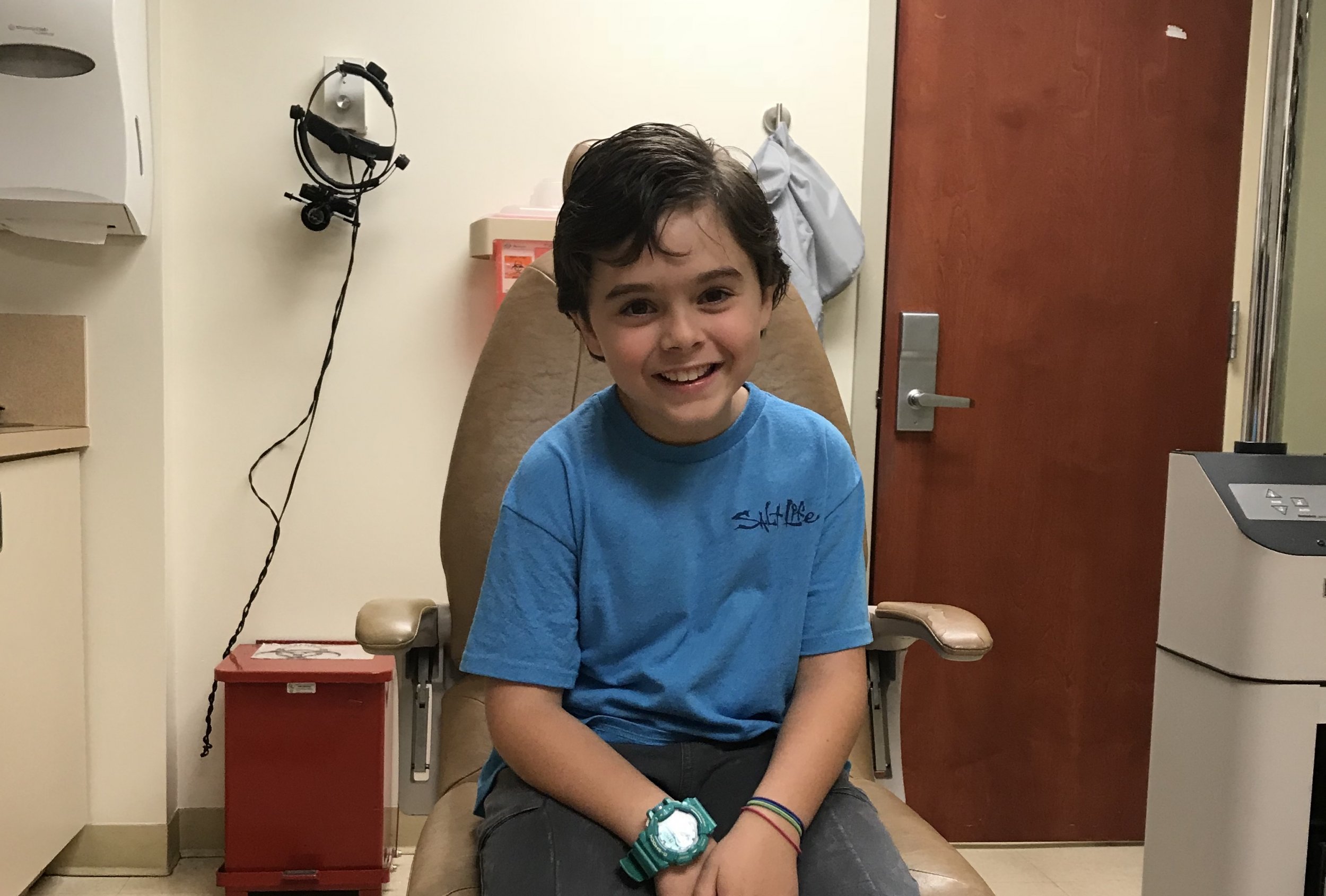
A legally blind nine-year-old boy in Florida was expected on Wednesday to become one of the first people in the country to successfully receive a cutting-edge gene therapy that could restore sight. The boy, who has a genetic form of blindness, received the treatment at the University of Miami's Bascom Palmer Eye Institute in Miami, Florida.
The boy, Creed Pettit, has a rare retinal disease called Leber congenital amaurosis. In December, the Food and Drug Administration approved Luxturna, often called the first true gene therapy, which can improve sight for people like Creed whose condition is caused by a specific genetic mutation.
The treatment is an injection of a virus delivered through a hair-thin needle underneath a patient's retina. The virus carries copies of a gene called RPE-65, which cells' machinery can use to create more of the protein that people with this condition are missing. Cells in a person's retina need this protein to survive and send signals to the brain. People who have a mutation in RPE-65 can't make this protein, so they have bad vision in low light and can go completely blind within a few decades.
Creed will be receiving this injection in his right eye on Wednesday; the left eye will be treated next week. He's young enough that his disease hasn't advanced very far yet. The treatment could improve his sight, especially when he's somewhere that doesn't have a lot of light. Even so, Creed's vision won't be perfect after the treatment, said Dr. Byron Lam, the boy's longtime physician. "We don't expect to restore someone's vision completely," he said, but there are no other alternatives.
So little data exists about Luxturna's long-term effects that it's impossible to say how long patients would see improved sight. Luxturna isn't a gene editing treatment—it doesn't permanently modify a cell's DNA sequence. So if the cell eventually breaks down the spare copies of the gene that has been injected, then the effect of the treatment might not last. "I can't really say what's going to happen to him 15, 20, 30 years from now," Lam said. "That's unknown territory."
Embracing the possibilities is the focus for Creed's mother, Sarah St. Pierre Pettit. Even as an infant, St. Pierre Pettit noticed that Creed's behavior was a little off. He always looked up and seemed to be looking for light. When he'd eat, he'd feel for his food instead of looking for it. He'd be happy outside in the sunlight, but the moment he was taken inside, "he'd have a fit," she said. At first, she thought her concern might be typical new-parent angst. "But I kind of knew it my heart that something was wrong immediately," she told Newsweek.
When Creed was about 2 years old, Lam diagnosed Creed at Bascom Palmer shortly before some of the last clinical trials began for Luxturna in 2012. St. Pierre Pettit and Creed went to see if he might qualify. But Creed, then about three years old, couldn't understand how to do the maze used during the trials to measure if people improved after the treatment, so he was unable to receive the experimental treatment. "He just was too young," St. Pierre Pettit said.
Treating two eyes with Luxturna costs $850,000, though St. Pierre Pettit's insurance covers the procedure. She said the company that developed Luxturna, Spark Therapeutics, has also helped, including finding an AirBnB for the family to stay at during Creed's recovery.
Lam and St. Pierre Pettit should know how Creed has responded to the procedure in about a week, when his eye will have healed. If all goes well, Creed's other eye will be treated, too.
St. Pierre Pettit said she hopes his sight will be much better after the procedure. "I think it's going to be big," she said. "I think there's going to be a big change."
"He is dying to see a real rainbow," she said.
Uncommon Knowledge
Newsweek is committed to challenging conventional wisdom and finding connections in the search for common ground.
Newsweek is committed to challenging conventional wisdom and finding connections in the search for common ground.
About the writer
Kate Sheridan is a science writer. She's previously written for STAT, Hakai Magazine, the Montreal Gazette, and other digital and ... Read more
To read how Newsweek uses AI as a newsroom tool, Click here.








